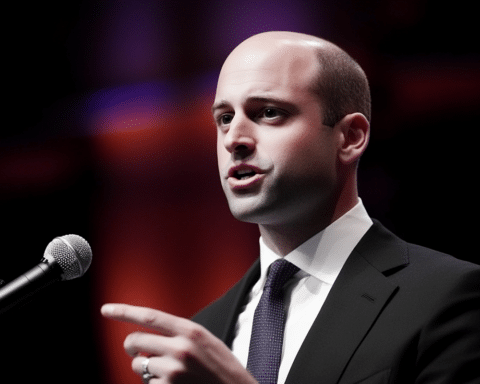In a strategic move to bolster national security in the era of artificial intelligence, the National Security Agency (NSA) has unveiled plans to create an Artificial Intelligence Security Center. This initiative comes as AI technologies are increasingly integrated into U.S. defense and intelligence systems.
Outgoing NSA Director, Army Gen. Paul Nakasone, made the announcement, emphasizing the critical role the center will play in safeguarding the nation’s interests.
Guarding Against AI-Powered Threats
The AI Security Center will be a vital addition to the NSA’s arsenal, operating within the existing framework of the NSA’s Cybersecurity Collaboration Center. Its primary mission is to protect the U.S. defense-industrial base against evolving threats posed by adversaries, with a particular focus on China and Russia. While Gen. Nakasone acknowledged that the U.S. currently maintains an advantage in AI capabilities, he underscored the need to remain vigilant, recognizing the significant AI threat posed by Beijing.
Notably, Gen. Nakasone also addressed concerns regarding foreign interference in the 2024 U.S. presidential elections, stating that no such interference has been detected so far. However, he affirmed the commitment of the U.S. to collaborate with international partners to deter any such efforts.
The Escalation of Cyber Threats
In recent months, China has escalated its cyber operations, targeting U.S. and allied institutions. Reports from cybersecurity researchers suggest that these attacks may include the pre-positioning of malware intended to disrupt military communications.
The U.S. and Japan issued a joint alert regarding Chinese hackers targeting government, industrial, telecommunications, and other entities that support their militaries.
The Role of AI in National Security
When questioned about the role of AI in automating threat analysis, Gen. Nakasone clarified that while AI assists in the process, ultimate decisions are made by humans. He emphasized the significance of upholding a “human-involved” approach.
The establishment of the AI Security Center follows an NSA study that identified securing AI models from theft and sabotage as a significant national security challenge, given the transformative potential of generative AI technologies.
A Focal Point for AI Security
The AI Security Center will serve as the NSA’s focal point for harnessing foreign intelligence insights, developing best practices, guidelines, evaluation methodologies, and risk frameworks. Its mandate extends to ensuring the secure development and adoption of AI within national security systems and the defense industrial base.
Collaboration will be a key element of the center’s strategy. It will work closely with U.S. industry, national laboratories, academia, the Department of Defense, and international partners to achieve its mission.
Leadership Transition
Gen. Nakasone, who has led both the NSA and U.S. Cyber Command since May 2018, will pass the torch to Air Force Lt. Gen. Timothy Haugh, his current deputy. Lt. Gen. Haugh will assume the dual leadership role responsible for U.S. cyber-defense, cyber-offense, and signals intelligence gathered through telecommunications surveillance.
As AI continues to reshape the landscape of national security, the establishment of the AI Security Center represents a proactive step by the NSA to safeguard the nation’s interests and maintain its competitive edge in this ever-evolving technological landscape.




